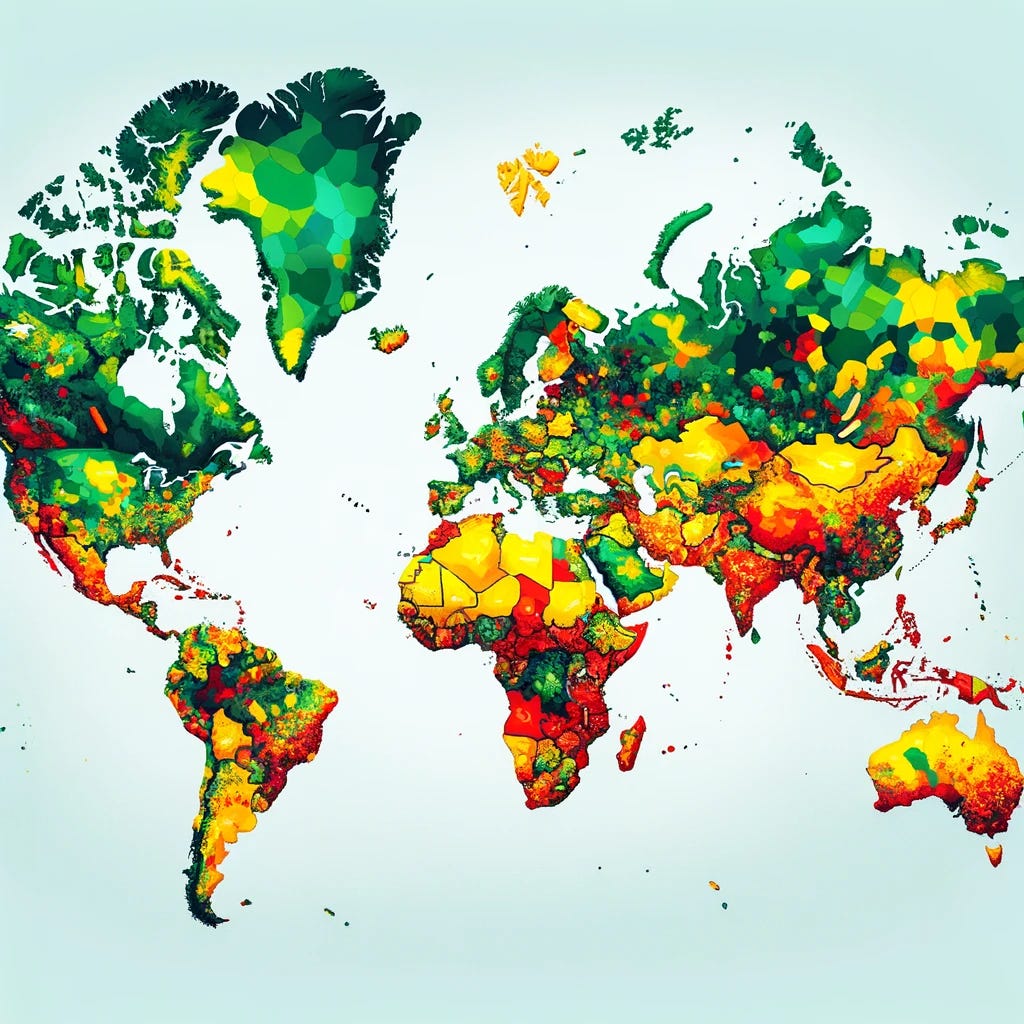Equitable Access to ADHD Medications Worldwide: Barriers and Pathways
Equitable Access to ADHD Medications Worldwide: Barriers and Pathways

The global discourse on ADHD (Attention-Deficit/Hyperactivity Disorder) has surged in the past few decades, primarily due to increased awareness, research, and advocacy. However, access to ADHD medications, often considered the frontline treatment, varies substantially across the world. This inconsistency isn’t solely based on genuine medical disagreements but is intertwined with economic, cultural, and logistical challenges posed by the sprawling reach of big pharmaceutical companies. Understanding these barriers, their implications, and potential solutions is crucial for achieving global health equity.
Economic Impediments
One of the most glaring challenges in achieving worldwide access to ADHD medications is the economic disparity among countries. In many low-to-middle income countries (LMICs), medications that are easily available in developed nations are either exorbitantly priced or not available at all.
The World Health Organization (WHO) has recognized that the high cost of medications can impede access to essential medicines, particularly in LMICs (World Health Organization, 2019). ADHD medications, especially the newer and more effective ones, are patented by big pharmaceutical companies, granting them exclusive rights to manufacture and sell the drugs for a set period. While these patents are designed to reward innovation, they can also keep drug prices high and out of reach for many.
Furthermore, even after these patents expire and generic versions become available, there’s no guarantee that these generics will be affordable or accessible in all regions. The cost of production, distribution, local taxes, and even tariffs can all contribute to the final price of the drug.
Cultural and Societal Barriers
In many countries, mental health and neurodevelopmental disorders like ADHD remain stigmatized. Such stigmas can lead to underdiagnoses, misdiagnoses, or a reluctance to seek treatment altogether. According to the Lancet Commission on Global Mental Health and Sustainable Development (2018), societal attitudes towards mental health can significantly hinder the development of effective mental health systems, including access to necessary medications.
Additionally, while ADHD is recognized and diagnosed in many countries, the understanding and acceptance of the disorder vary. Some societies may dismiss ADHD symptoms as mere “laziness” or “disobedience,” making it difficult for those affected to seek or receive appropriate care.

Logistical and Infrastructural Challenges
Another significant barrier is the lack of infrastructure or logistical channels to distribute ADHD medications, especially in remote or war-torn regions. Even if medications are donated or provided at reduced costs, ensuring they reach the individuals in need can be a Herculean task. The cold chain distribution, essential for some medications to retain their efficacy, can be challenging to maintain in areas without stable electricity or transportation (Beran et al., 2017).
Furthermore, many countries lack adequately trained healthcare professionals familiar with ADHD and its treatments. Without proper training and resources, misdiagnosis or misuse of medications becomes a genuine concern.
Bridging the Gap: Potential Solutions
Despite these barriers, several pathways might lead to more equitable access to ADHD medications worldwide:
1. Tiered Pricing: Also known as differential pricing, this approach involves selling the same product at different prices in different countries based on their ability to pay. This approach can make medications more affordable in LMICs without affecting profitability in wealthier nations (Moon et al., 2011).
2. Compulsory Licensing: In certain situations, governments can allow someone else to produce a patented product without the consent of the patent owner, usually to address public health crises. This method can lower prices by introducing competition (t’Hoen et al., 2018).
3. Strengthening Local Production: Encouraging and aiding countries to develop their pharmaceutical manufacturing capabilities can ensure more consistent and affordable access to essential medications.
4. Global Collaboration: International partnerships, like the Global Fund to Fight AIDS, Tuberculosis, and Malaria, have proven effective in combating global health challenges. A similar collaboration focusing on ADHD and other mental health conditions could pool resources, research, and strategies to address access disparities.
In conclusion, while the barriers to global access to ADHD medications are substantial, they are not insurmountable. By understanding these challenges and collaboratively pursuing solutions, it’s possible to move towards a world where every individual, regardless of their geographical or economic circumstances, can access the treatments they need.
References
- World Health Organization. (2019). Access to medicines: making market forces serve the poor. WHO.
- Lancet Commission on Global Mental Health and Sustainable Development. (2018). The Lancet Commissions. The Lancet.
- Beran, D., McCabe, A., & Yudkin, J. S. (2017). Access to medicines versus access to treatment: the case of type 1 diabetes. BMJ Global Health, 2(2), e000301.
- Moon, S., Jambert, E., Childs, M., & von Schoen-Angerer, T. (2011). A win-win solution?: A critical analysis of tiered pricing to improve access to medicines in developing countries. Globalization and health, 7(1), 39.
- t’Hoen, E. F. M., Veraldi, J., Toebes, B., & Hogerzeil, H. V. (2018). Medicine procurement and the use of flexibilities in the Agreement on Trade-Related Aspects of Intellectual Property Rights, 2001–2016. Bulletin of the World Health Organization, 96(3), 185.
Dr. Jerry D. Smith Jr. is a clinical psychologist and empathic expert specializing in human empowerment and leadership.
More from Dr. Jerry Don Smith Jr. and The ADHD Review





